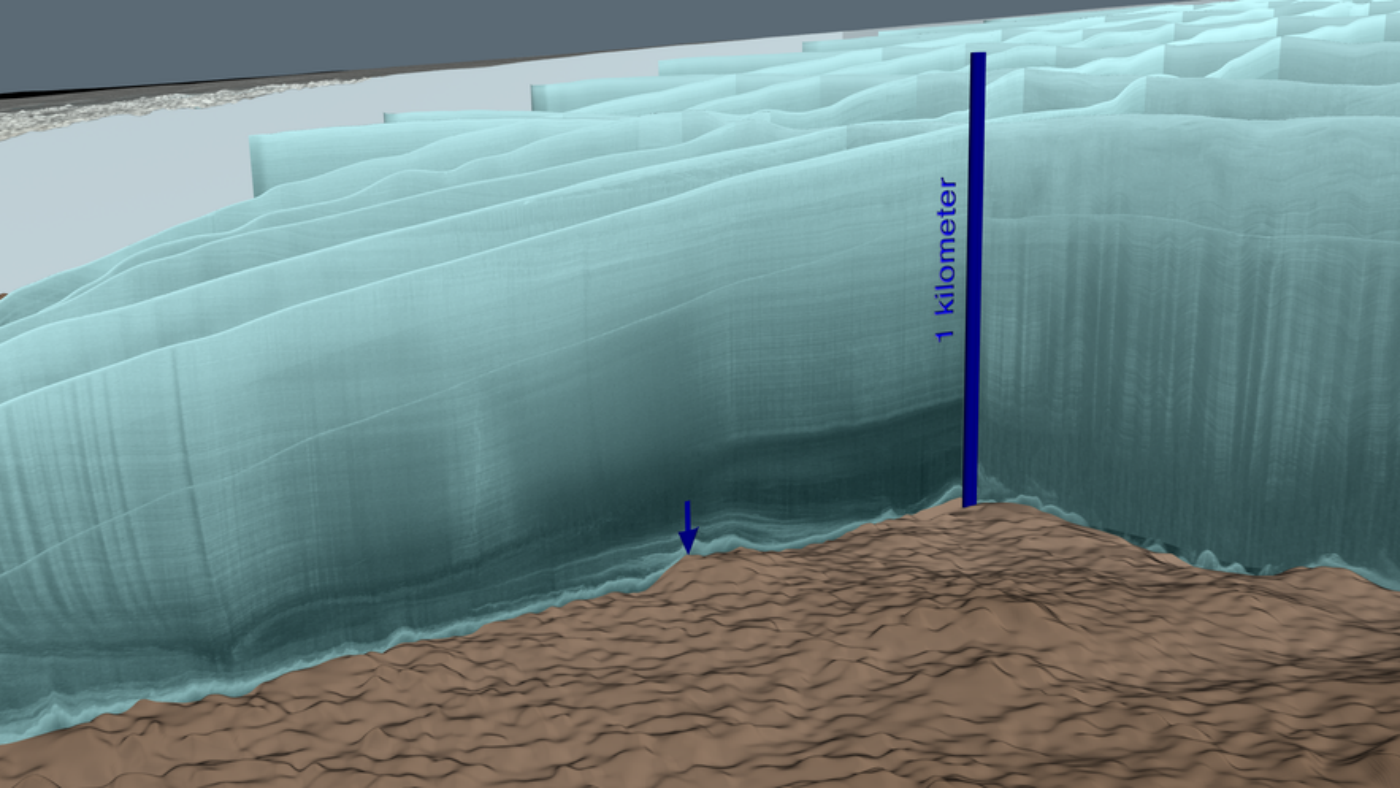Why is there a 19-mile crater below Greenland?
Researchers chance upon vast meteorite hole beneath surface ice sheet

A free daily email with the biggest news stories of the day – and the best features from TheWeek.com
You are now subscribed
Your newsletter sign-up was successful
A city-sized crater hidden beneath a massive ice sheet for centuries has been found in northwest Greenland.
The massive hole is more than 19 miles wide and 300 metres deep, and is believed to have been formed when an iron meteorite smashed into the Earth around three million years ago. If confirmed, it would be the first impact crater ever found under ice, says National Geographic.
The potentially landmark discovery was made by an international team led by researchers from the University of Copenhagen’s Centre for GeoGenetics at the Natural Museum of Denmark. The researchers - who have published a paper about their find in journal Science Advances - chanced upon the crater while examining radar images used to map the topography beneath Greenland’s ice sheets.
The Week
Escape your echo chamber. Get the facts behind the news, plus analysis from multiple perspectives.

Sign up for The Week's Free Newsletters
From our morning news briefing to a weekly Good News Newsletter, get the best of The Week delivered directly to your inbox.
From our morning news briefing to a weekly Good News Newsletter, get the best of The Week delivered directly to your inbox.
After noticing a circular impact under what is known as the Hiawatha Glacier, the researchers have spent the past three years working out exactly what it might be. They have concluded that it is one of the 25 largest impact craters on Earth, according to a report from Nasa, which was involved in the research.
“The crater is exceptionally well-preserved and that is surprising because glacier ice is an incredibly efficient erosive agent that would have quickly remove traces of the impact,” said study author Professor Kurt Kjaer.
In order to confirm the crater’s age, the scientists will have to drill through more than half a mile of ice in order to collect rocks for laboratory dating.
“We would endeavour to do this - it would certainly be the best way to get the ‘dead fish on the table’, so to speak,” Kjaer told the BBC.
A free daily email with the biggest news stories of the day – and the best features from TheWeek.com
Dating the crater’s age would allow scientists to find out if the meteor impact occurred during the last Ice Age, which ended approximately 11,700 years ago.
If so, it could reignite interest in the Younger Dryas impact hypothesis, a theory which suggests that an intense period of cooling at the end of that Ice Age was precipitated by an impact from one or more large comets in North America, says Science magazine.
That suggests the impact of the crater might have impacted the history of the planet.
You can watch Nasa’s video showing how the crater discovery came together here:
-
 The environmental cost of GLP-1s
The environmental cost of GLP-1sThe explainer Producing the drugs is a dirty process
-
 Greenland’s capital becomes ground zero for the country’s diplomatic straits
Greenland’s capital becomes ground zero for the country’s diplomatic straitsIN THE SPOTLIGHT A flurry of new consular activity in Nuuk shows how important Greenland has become to Europeans’ anxiety about American imperialism
-
 ‘This is something that happens all too often’
‘This is something that happens all too often’Instant Opinion Opinion, comment and editorials of the day
-
 The plan to wall off the ‘Doomsday’ glacier
The plan to wall off the ‘Doomsday’ glacierUnder the Radar Massive barrier could ‘slow the rate of ice loss’ from Thwaites Glacier, whose total collapse would have devastating consequences
-
 Can the UK take any more rain?
Can the UK take any more rain?Today’s Big Question An Atlantic jet stream is ‘stuck’ over British skies, leading to ‘biblical’ downpours and more than 40 consecutive days of rain in some areas
-
 As temperatures rise, US incomes fall
As temperatures rise, US incomes fallUnder the radar Elevated temperatures are capable of affecting the entire economy
-
 The world is entering an ‘era of water bankruptcy’
The world is entering an ‘era of water bankruptcy’The explainer Water might soon be more valuable than gold
-
 Climate change could lead to a reptile ‘sexpocalypse’
Climate change could lead to a reptile ‘sexpocalypse’Under the radar The gender gap has hit the animal kingdom
-
 The former largest iceberg is turning blue. It’s a bad sign.
The former largest iceberg is turning blue. It’s a bad sign.Under the radar It is quickly melting away
-
 How drones detected a deadly threat to Arctic whales
How drones detected a deadly threat to Arctic whalesUnder the radar Monitoring the sea in the air
-
 ‘Jumping genes’: how polar bears are rewiring their DNA to survive the warming Arctic
‘Jumping genes’: how polar bears are rewiring their DNA to survive the warming ArcticUnder the radar The species is adapting to warmer temperatures